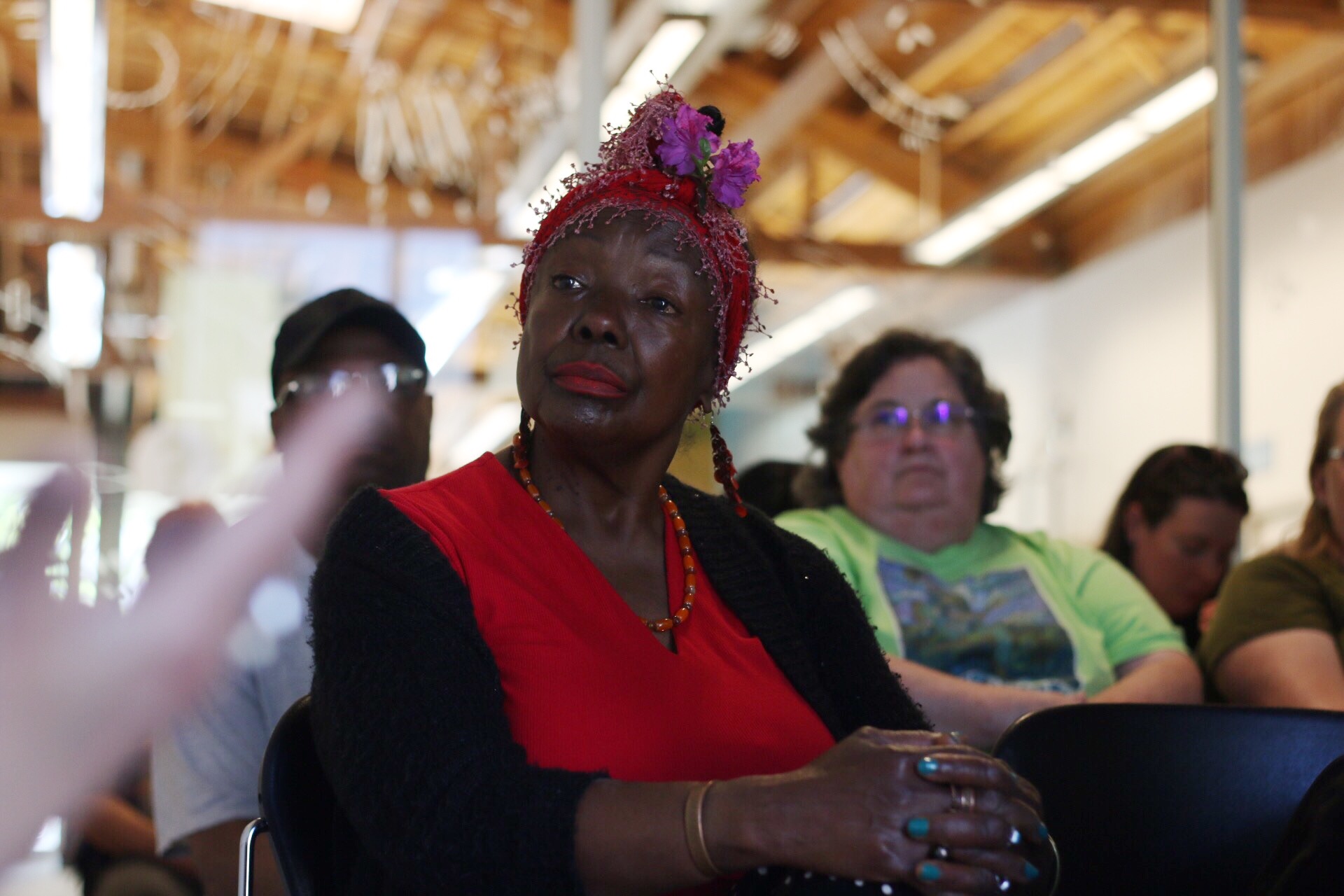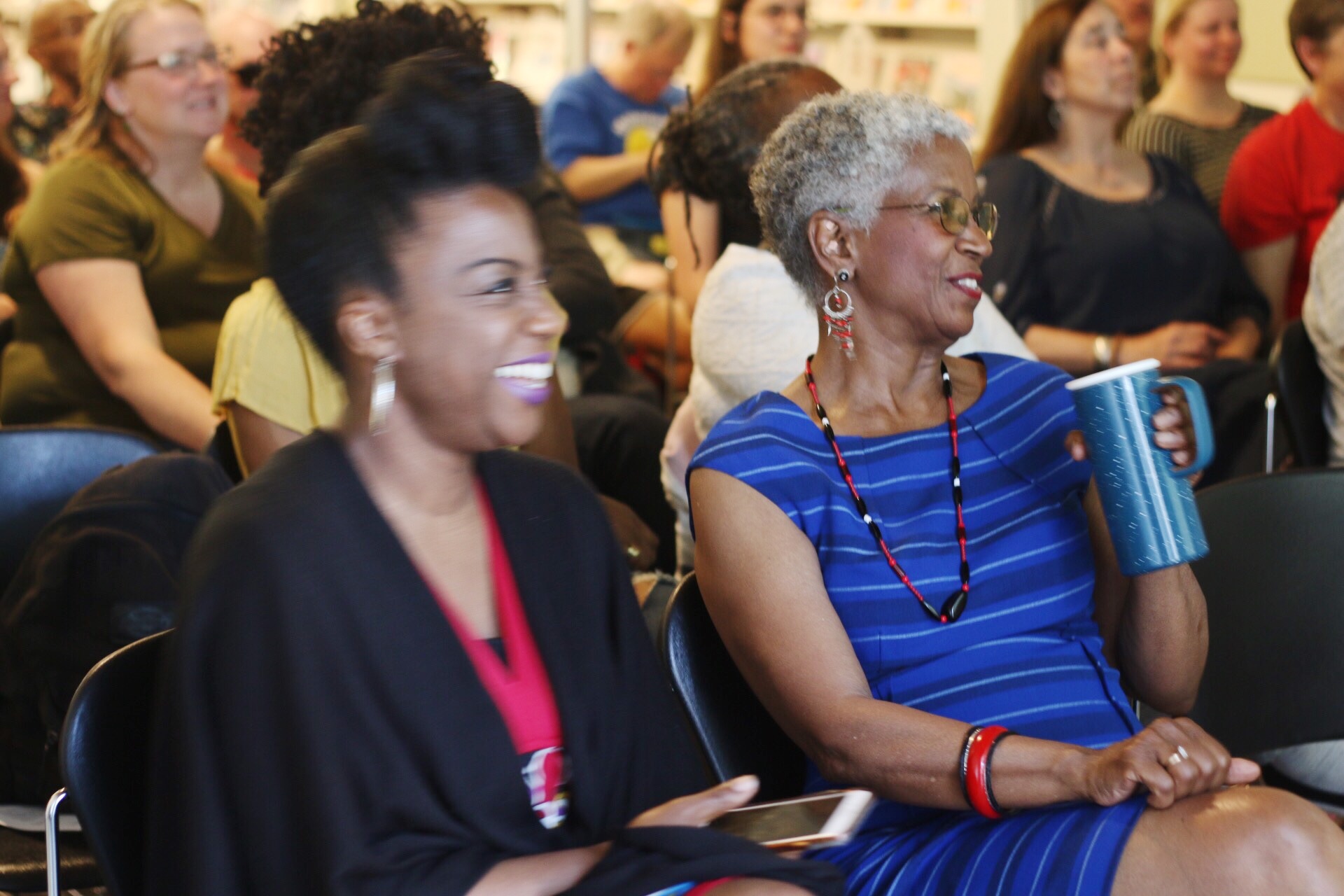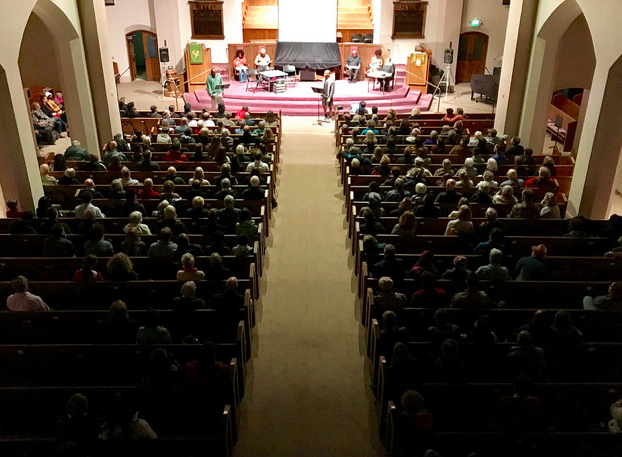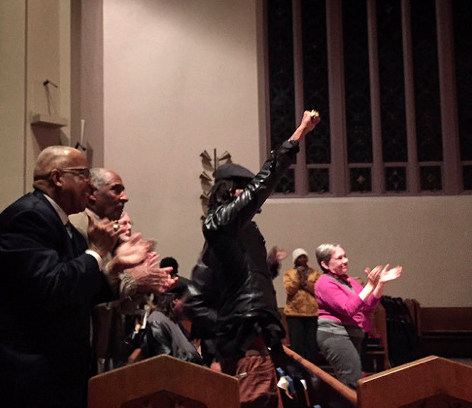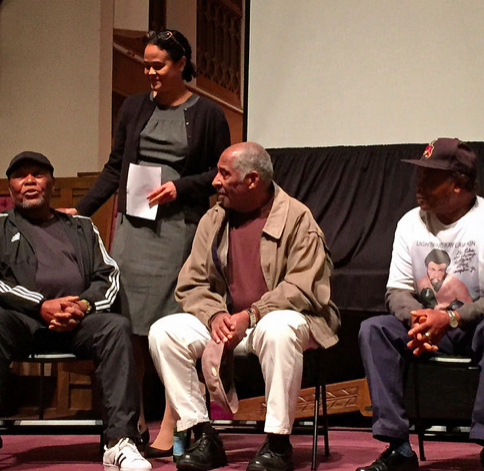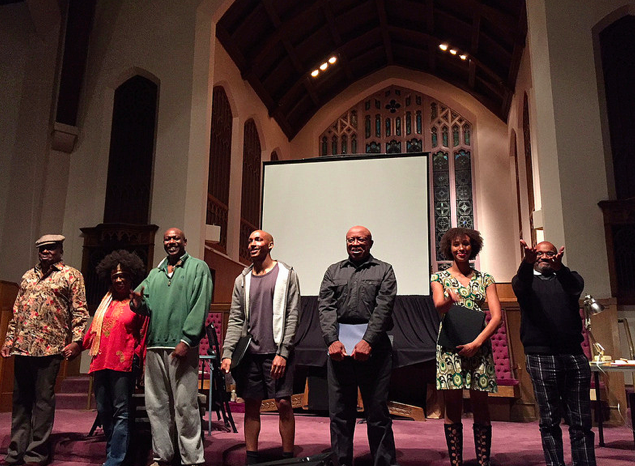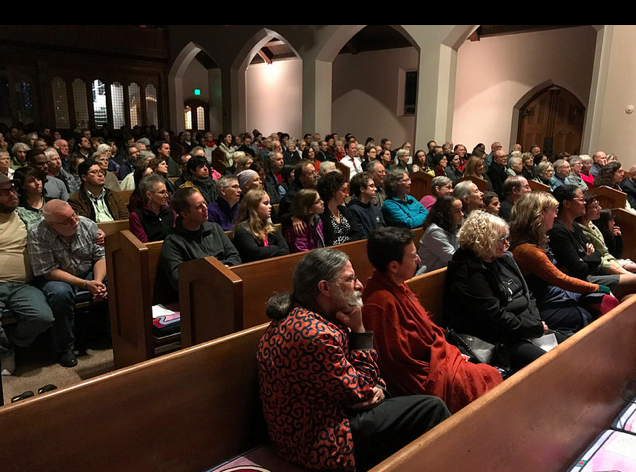"Will anyone show up?" That is always the question when we host an event that deals with our appalling racial history, and with past and present community marginalization. On Saturday, May 12th, the question is particularly relevant. It is a beautiful sunny day, one of those Portlanders wait all winter for, to remind us why this city is, after all, such a great place.
The Kenton Library is particularly quiet. The St John Street Fair, with its great arts, music and food, is calling. Would any of the 986 people who pressed the Interested button on Facebook show up? What about the 92 who committed on "going"?
Slowly but surely, as it has been happening for the past 4 years, event after event, the room fills up. Race Talks director Donna Maxey, and artist Velynn Brown, both Vanport descendants, are here, ready to guide us and facilitate our journey into feeling and understanding. Henk Pander, the renowned visual artist who has been capturing the shipyards, Liberty Ships, and the Vanport Flood in his watercolors, is here too, sitting in the audience carrying his own painful memories of war, and "home" back in Holland.
Those who are meant to be here are here. And once again, we gather around the stories of those who share them as gifts: leaving the Jim Crow south just to find a more subtle but equally dangerous racism in Oregon, building a better life and a new community in Vanport, losing both in 1948 once a flood wiped all out in a few hours... the new "chapter" in redlined Albina: losing all, rebuilding stronger, losing all again; this time, not because of a poorly conceived system of dikes and irresponsible lack of evacuation plans, but because of racist city planning under the name of urban renewal.
Velynn Brown, Vanport descendant, performing her poem "Roots and Remnants" (Photo by Andrew DeVigal)
We share only a small selections of our oral histories, part of the on-going memory activism effort now in its fourth year, and then we sit quietly with our eyes closed to listen, truly listen, to Velynn Brown's words. Her poem, "Roots and Remnants," is a lullaby of memories. I cheat, and open my eyes for a moment. Tears are streaming down her face. My face. Everyone's face. She has embraced the responsibility and the honor of being the "Remnant Keeper," the one left to tell the story. We clap for long time. If my hands could speak they would say Thank you. I am sorry. Forgive us. Forgive me. What can I do? I made my home in your home. I don't want my story to bury yours. And how can we tell a different one together, one where we all belong?
Donna Maxey must understand the language of my hands, because she stands up, hugs Velynn as warmly and tight as I wish I could do right now, and answers my questions. See us, she says. See your neighbor. Let's truly see and meet each other. Ours and yours survival depends on it.
"First they came for the Jews and I did not speak out — because I was not a Jew
Then they came for the communists and I did not speak out — because I was not a communist
Then they came for the trade unionists and I did not speak out because I was not a trade unionist
Then they came for me and there was no one left to speak for me.
— Pastor Niemoeller, Victim of the Nazis in Germany
Race Talk Director Donna Maxey, Visual Artist Henk Pander, Artists Velynn Brown, and Story Midwife/Vanport Mosaic Co-director Laura Lo Forti (Photo by Emmalee McDonald).
A PLACE CALLED HOME; FROM VANPORT TO ALBINA will be offered again on June 24th, 3-4.30pm at North Portland Library. Join us for a FREE screening of oral history documentaries, part of the Vanport Mosaic participatory on-going oral history project, with a facilitated dialogue presented in collaboration with Donna Maxey, Founder/Director of RACE TALKS, and artist Velynn Brown, both Vanport descendants. Through archival footage, historic photographs, and compelling first-person narratives, this collection of short films and audio oral histories traces the story of Portland’s African American community from the 1940s to 1970s. It is a story of struggle, perseverance, and resilience that continues today.
This program is part of the Our Story: Portland Through an African American Lens digital collection and project-
Made possible by The National Endowment for the Humanities Fund of The Library Foundation.
The Vanport Mosaic oral-history project is facilitated by Story Midwife Laura Lo Forti, made possible by Regional Arts & Culture Council, Oregon Heritage Commission, Oregon Historical Society, The Kinsman Foundation.
Thanks to our partners: University of Oregon School of Journalism and Communication, Open Signal, Stream PDX.




